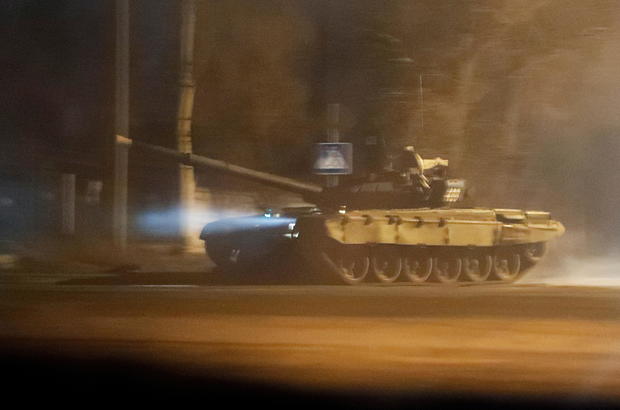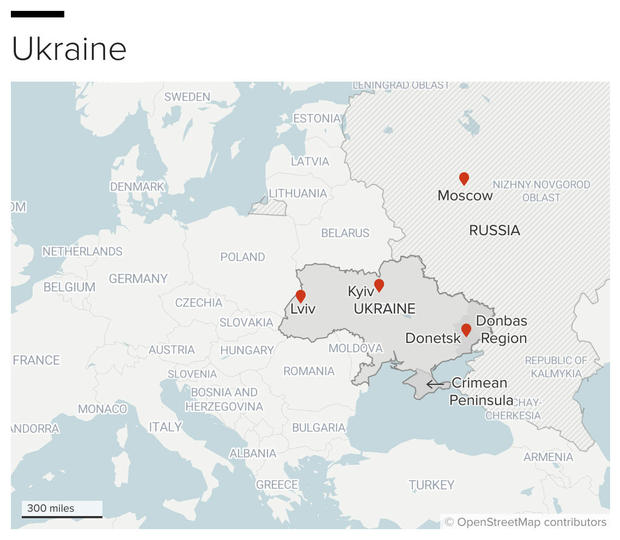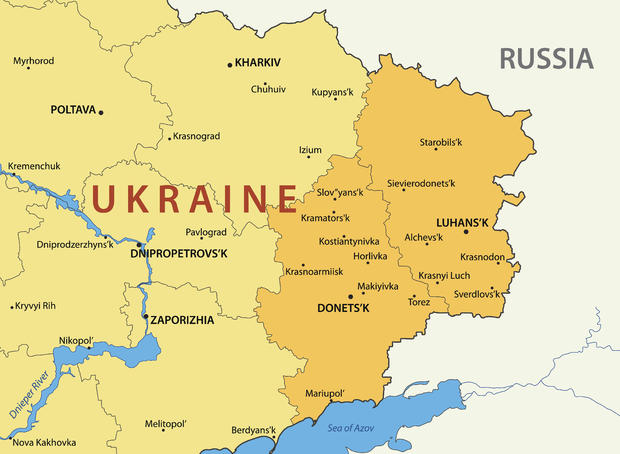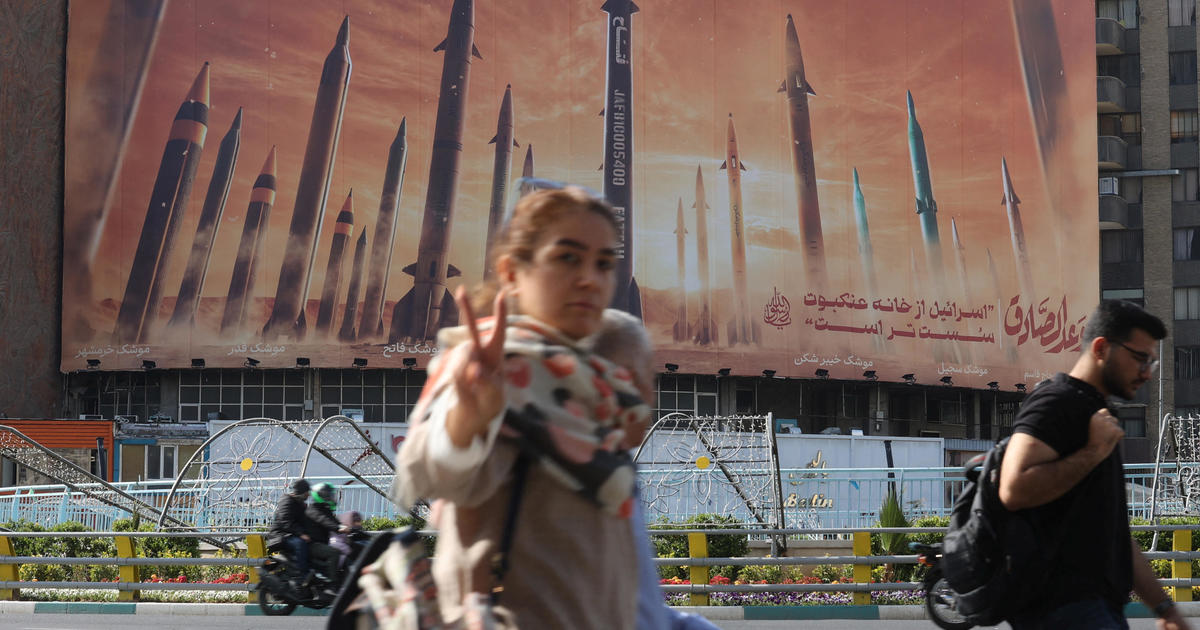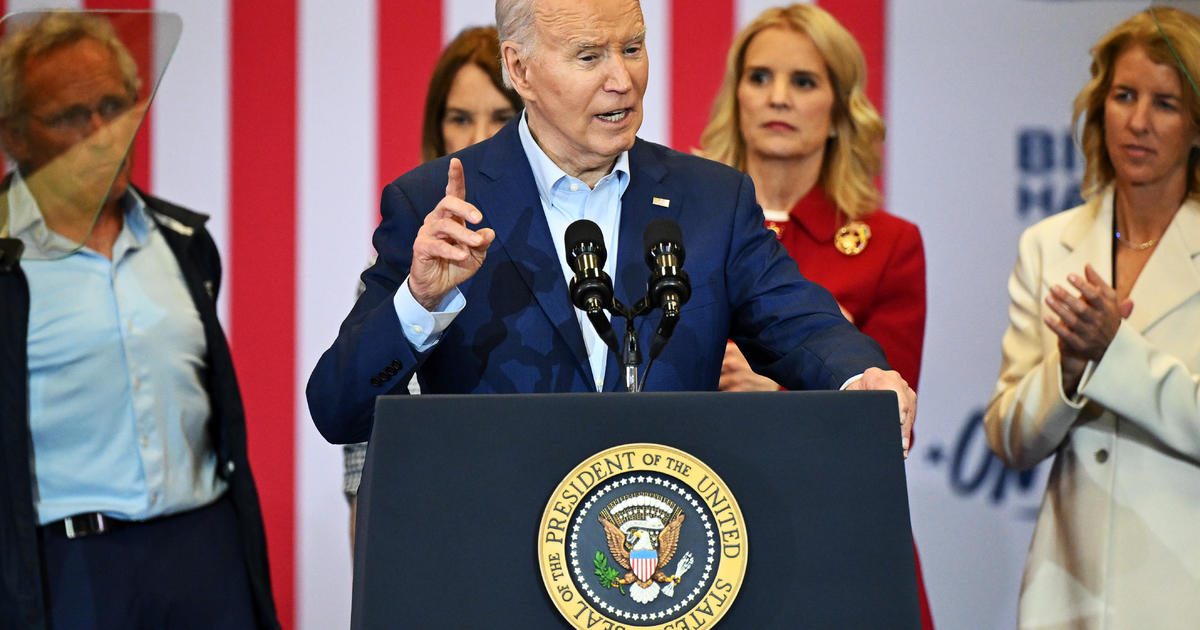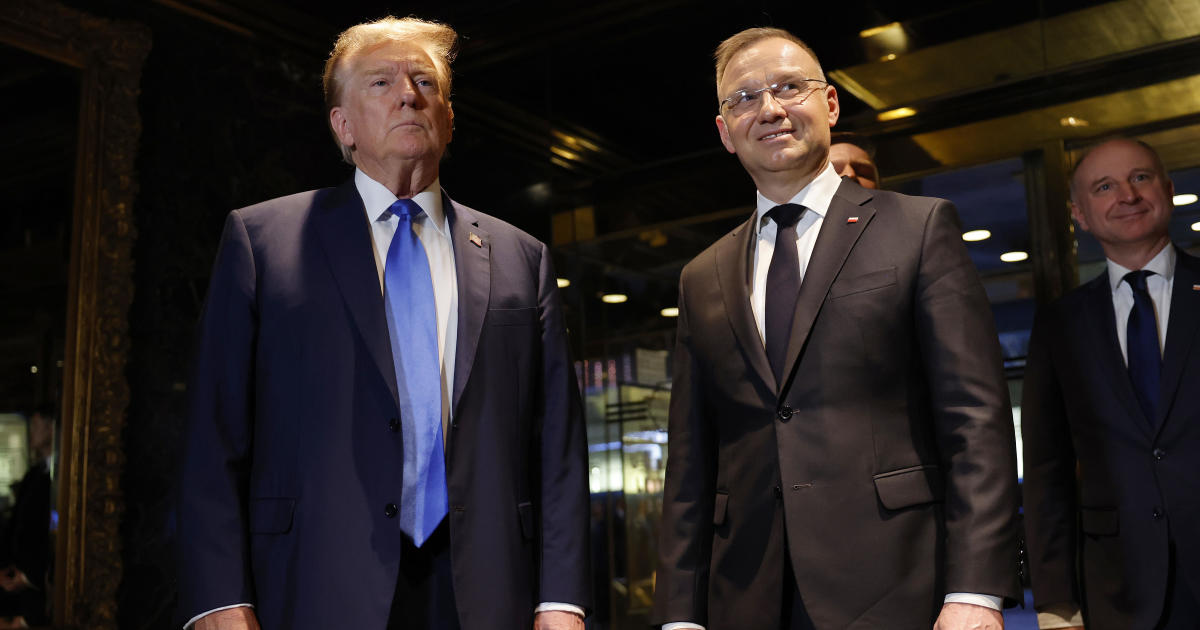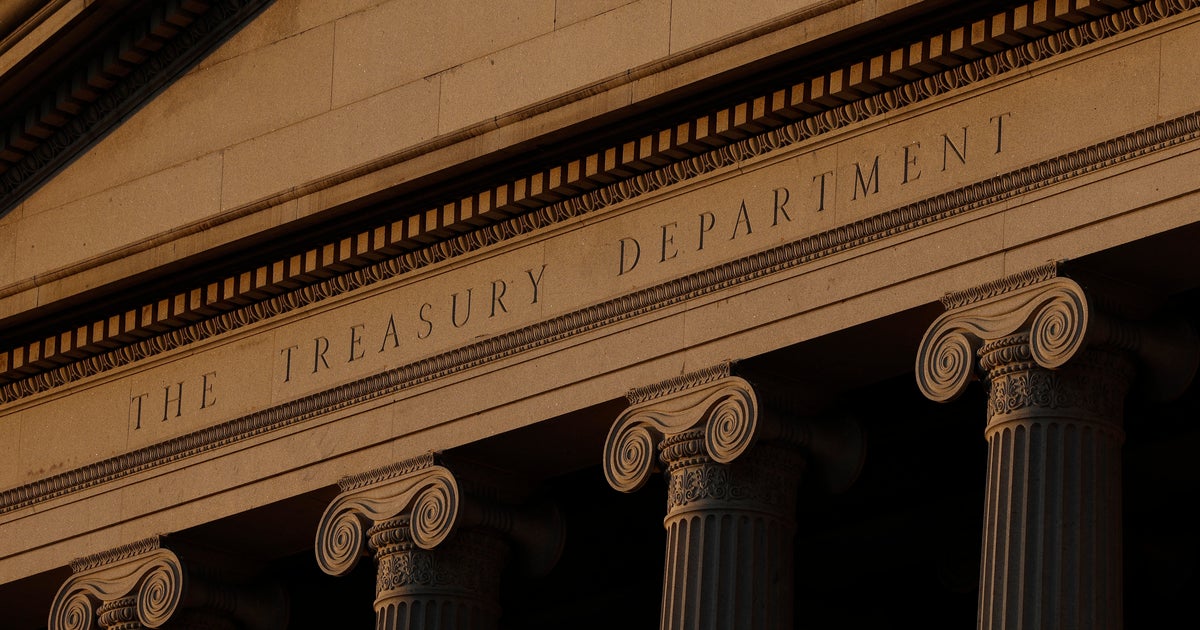Ukrainians expect "losses" as U.S. and Europe ready sanctions over Putin's "act of war"
Kyiv, Ukraine — The U.S. and its European allies were preparing on Tuesday to hit Russian President Vladimir Putin's regime with new sanctions after he said he would send "peacekeeping" forces into Ukraine's eastern breakaway regions. The Biden administration quickly imposed limited new sanctions on Russia Monday evening after Putin formally recognized the rebel-held Luhansk and Donetsk regions as independent from Ukraine — a move blasted by many nations as a violation of both international law and Ukraine's sovereignty.
"The darkness of uncertainty has fallen," Ukraine's Minister of Defense Oleksii Reznikov said in a written statement on Tuesday. "The Kremlin has taken another step towards the revival of the Soviet Union… There are difficult challenges ahead. There will be losses. We will have to go through pain, overcome fear and despair."
On Tuesday, the Russian Foreign Ministry said it would soon evacuate its embassy staff from Ukraine "to protect their lives and safety," alleging that the Russian embassy and consulates general in Ukraine had faced "repeated attacks" since 2014.
The Western response to Putin's escalating aggression against Ukraine carries risk in itself: The U.S. and its allies are walking a tightrope, trying to keep diplomatic efforts afloat while preventing Putin from cleaving off yet another chunk of an eastern European democracy for Russia.
Western leaders have warned that if negotiations with Russia fail, it could lead to the bloodiest military conflict in Europe since World War II — and send already-high energy prices through the roof, threatening economies from Kyiv to Washington.
Calculated response to an "act of war"
European Commissioner for Justice Didier Reynders called Russia's unilateral declaration of Donetsk's and Luhnask's independence — and Putin's decision to send so-called peacekeeping forces into the breakaway regions — an "act of war."
U.S. Ambassador to the U.N. Linda Thomas-Greenfield dismissed the notion that Russia was carrying out any sort of peacekeeping mission there as "nonsense."
"We know what they really are," she said of the Russian forces during an emergency meeting of the U.N. Security Council convened late on Monday evening. She said Russia was trying to "create a pretext for a further invasion of Ukraine."
"We will continue to consult with our allies and partners in the coming hours on the way forward," a U.S. State Department spokesperson said. "We are committed to finding a diplomatic resolution that avoids a brutal and costly conflict, but diplomacy cannot succeed unless Russia changes course."
On Tuesday, the Biden administration backed away from plans for Secretary of State Antony Blinken to hold a direct meeting on Thursday with his Russian counterpart, Sergey Lavrov. Blinken said Tuesday that the meeting — which was intended to lay the groundwork for a potential diplomatic solution — would no longer take place "now that we see the invasion beginning."
"It does not make sense to go forward with that meeting at this time," Blinken said.
Europe prepares new sanctions
European nations, including some that rely directly on Russian natural gas supplies to heat homes, tried to show a unified front on Tuesday.
In a significant move, Germany took steps to halt the certification of the brand new "Nord Stream 2" pipeline, a multi-billion dollar project intended to double the amount of gas pumped directly from Russia to Germany. Owned by Russia's state-backed energy company Gazprom, the pipeline has always been controversial because it circumvented Ukraine and would thus deprive Kyiv of fees it charges for the transit of Russian gas to Western Europe.
The U.S. has long voiced opposition to Germany switching on the pipeline, saying it would increase the ally's dependence on Russia for energy and potentially give Russia new leverage over Europe.
British Prime Minister Boris Johnson promised, meanwhile, to "immediately institute a package of economic sanctions" against Russia, and officials from major EU economies were set to gather in Paris to discuss the same.
"This is, I should stress, just the first barrage of U.K. economic sanctions against Russia, because we expect, I'm afraid, that there is more Russian irrational behavior to come," Johnson said in London.
U.K. Defense Secretary Ben Wallace called Russia's actions in eastern Ukraine "incredibly serious."
"This is a sovereign state that has now had some of its land effectively annexed from it. This is a sovereign state that is a democratic state in Europe, all of us in Europe should worry," Wallace said. "We should not hesitate to take whatever action we need to to deter President Putin from undermining both NATO, but also Europe, and more importantly, our values."
"Everything is on the table," the EU's Reynders told Belgian broadcaster RTBF on Tuesday morning about the sanctions the bloc was ready to impose.
The West has threatened Putin and his government with sanctions for months, but the threats have failed to deter him from marching steadily down the path toward another invasion of Ukraine.
Asked on Tuesday whether his country's Western partners were doing enough to support Ukraine and dissuade Putin from a full-scale invasion, Ukrainian Defense Minister Oleksii Reznikov would only say: "We will see."
Violence escalates in the east
Putin last sent troops over the border in 2014, when he annexed the Crimean Peninsula away from Ukraine. His government has supported the separatists in the breakaway regions since then, framing the conflict as a struggle by ethnic Russians in Ukraine against tyrannical leaders in Kyiv — even claiming that Ukraine's government is carrying out a "genocide" in the area.
Last week, the U.S. laid out the steps it feared Putin would take, starting with "false-flag" incidents and dramatic claims to create a pretext for invasion, and leading up to a possible attempted military overthrow of Kyiv.
With as many as 190,000 Russian forces massed around Ukraine's borders, Moscow and the rebels who are effectively Putin's proxy forces in eastern Ukraine continue to accuse Ukrainian troops of shelling in the region. Ukraine denies attacking the breakaway areas or sending any troops across the border to carry out "sabotage" attacks in Russia, as Moscow claimed it was doing on Monday.
At the emergency meeting of the U.N. Security Council on Monday, Russia's Ambassador said Russia was still open to diplomacy, but would not allow "a new bloodbath in the Donbas."
With video showing apparent Russian forces moving in to bolster the rebels, it remained unclear how many more might follow in the coming days. As his government came under steadily mounting pressure from the West, it was also unclear whether Vladimir Putin really has any interest in preventing a wider war.
